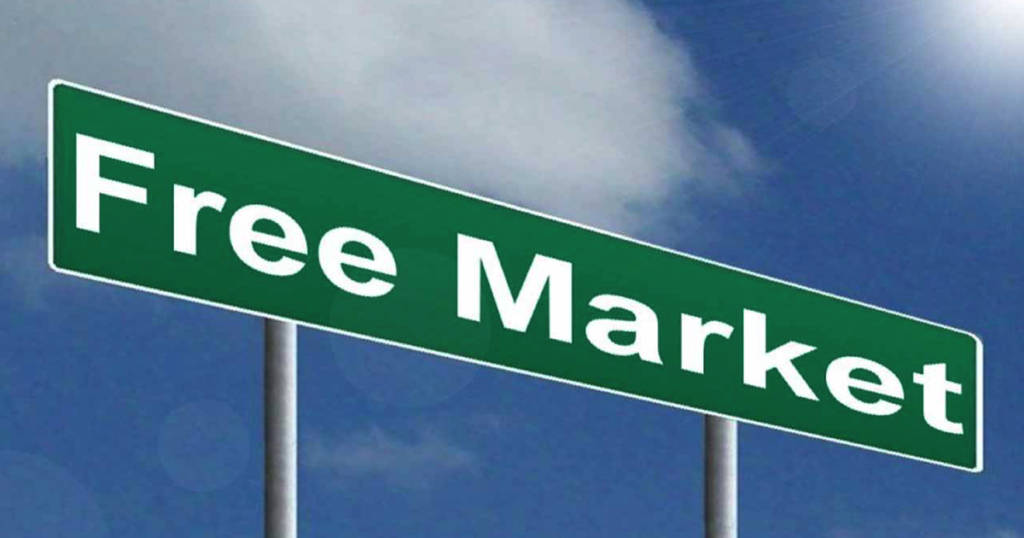Recently Dr. Peter Kwasniewski wrote an article critical of free market capitalism for LifeSiteNews (How Free Market Capitalism Wears Away at ‘Economic Chastity’). Kwasniewski and I are fellow writers for the Catholic site OnePeterFive, and I have a great deal of respect for him. His writings on the Catholic liturgy and the current state of the Church are indispensable in this time of confusion. However, I found his critique of the free market to be wanting and in need of correction.
One of the Kwasniewski’s most significant assumptions in his article is that the economic situation in the Middle Ages was superior to modernity. Unlike most moderns (but like Kwasniewski), I don’t see the Middle Ages as a “Dark Ages” with little or nothing to recommend it. In many ways that society was superior to today’s. However, I think it’s a stretch to say the economic situation was better, considering most people lived barely above subsistence, with no freedom to improve their economic lot in life. Further, the rulers of the society frequently and heavily taxed these peasants for their own aggrandizement. It would be a fascinating study to compare the two ages and their respective economic conditions for the average person. I can’t imagine the Middle Ages would come out on top.
The Need for Strong Government?
But today I want to just look at one point Kwasniewski makes, right at the beginning of the article:
Proponents of a “morally neutral” or even “morally good” capitalist free market economy seem blind to the perils of handing over the keys to fallen human nature—not to mention blind to economic reality, since, as Pius XI recognized in his great social encyclical Quadragesimo Anno, there has never been, nor could there ever be, a perfectly free market; there will only be an arena in which the strong and the weak and their allies or enemies struggle for power.
This is why a society cannot avoid the need for a strong government that implements a system of just laws to regulate economic life. No fence-sitting is possible; either a system of just laws will exist to regular the economy, or a system of unjust laws, or a confused chaos of both kinds—but a government-free realm of economic transactions is practically impossible and undesirable even if it were possible.
Kwasniewski is essentially saying, “Because of Original Sin, man cannot be left to his own devices when it comes to the economy; he therefore needs a strong government to enforce some level of order on the market, for the good of its participants.”
Now, before I get to the essential flaw in this argument, I want to make something clear: free market capitalism is not anarchy. It doesn’t mean no laws; it means very limited laws that only prevent fraud and deception in the marketplace. For example, someone who breaks a freely-entered-into contract is subject to legal penalties, even in a free market. Kwasniewski seems to indicate that a free market would have *no* government involvement, but that’s not true (who the “government” would be is another question, of course).
All Have Fallen
But the more significant issue with Kwasniewski’s analysis is the failure to recognize that a “strong government” has the same problem with fallen human nature that a free market has. In other words, any and every government is made up of individual men and women, who are as subject to Original Sin as any capitalist. The difference, however, is that government has power that no capitalist has—the power to use force to enforce its will without penalty.
In a free market system, each individual and corporation is a servant of the market. The word “market” is often considered cold and impersonal, but the market is simply the aggregate of all the individuals in the society. In a free market, in other words, sellers are the servants of the buyers. If people don’t want a product or service a corporation offers, then the corporation will go out of business. The corporation has no ability to force people to buy the product. Likewise, any individual who has an idea can sell that product to the market and become economically successful—no one has the power to stop him through regulations or other unnecessary laws.
But if a “strong government” is involved, now you have inserted fallen men and women into the equation with an authority no one else has. They can favor certain companies and individuals over others. We see this often in today’s crony capitalism (which Kwasniewski rightly condemns), but here’s a point that Kwasniewski misses: it also happened all the time in the Middle Ages. Kings and rulers regularly gave preference to family members and other sycophants in exchange for favors and support. That’s what happens when fallen men and women obtain power over others: they abuse it.
Free market capitalism recognizes the fallen state of human nature. But instead of granting power to a select few of those fallen men and women, it diffuses power as much as possible, not allowing any one group to have authority over any other in the market. Although it’s often denigrated as “survival of the fittest,” the free market gives everyone equal opportunities for success. That’s something that wasn’t possible in the Middle Ages, and only happens today when the market is allowed to be free.

